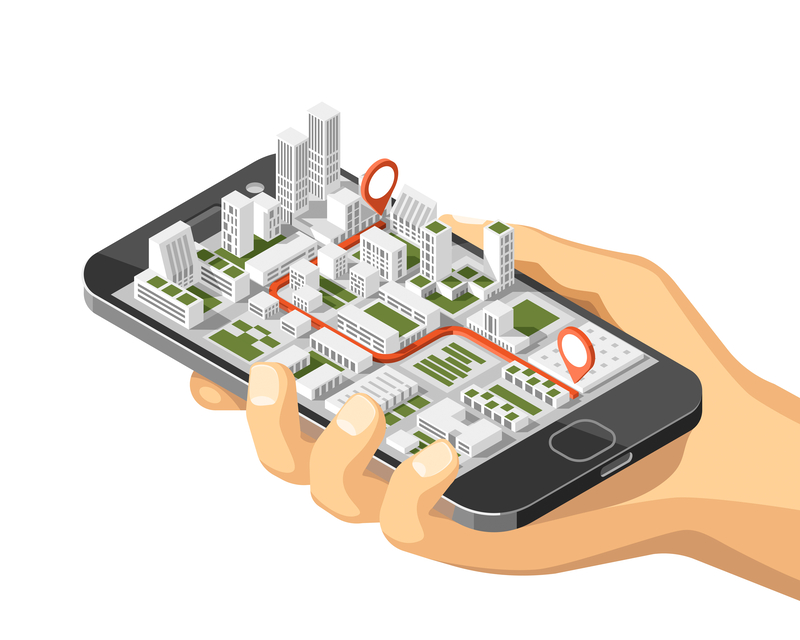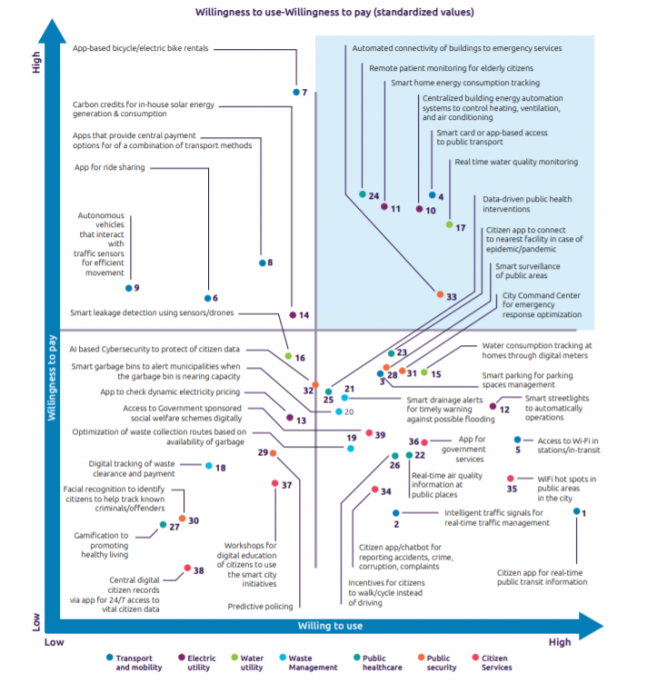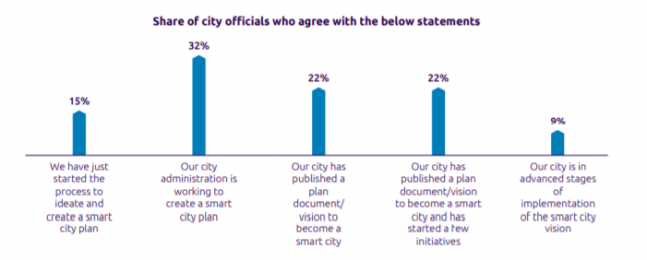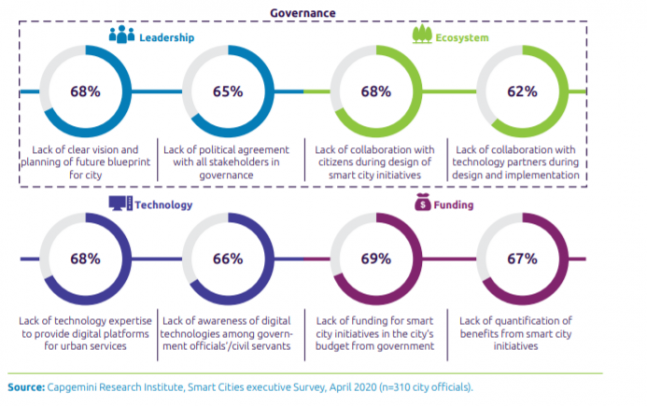
Over half of citizens believe technology can make their city more sustainable (58 percent), improve urban services (57 percent) and provide a better quality of life (54 percent), according to new research from consulting firm Capgemini.
Capgemini Research Institute surveyed 10,000 citizens and over 300 city officials across 10 countries and 58 cities for the Street Smart: Putting the citizen at the center of smart city initiatives report.
The study also finds that 36 percent of citizens are willing to pay more to access some digital services, which could help cities attract more start-ups and private partners and better meet citizens’ sustainability expectations, as well as potentially raise revenue at a time of stretched budgets. The figure rises to 44 percent among millennials, 41 percent for Gen Z respondents and 43 percent for those earning more than US$80,000.
For those who would be willing to pay more, the choice for payment options is split across usage-based pay (38 percent), subscription (37 percent), and a one-time lump sum (25 percent).
Premium options
Capgemini analysed 39 use cases across seven areas, finding that there is a higher willingness to pay for smart city tools in core areas such as transport, utilities and health services. Specific opportunities identified included smart card or app-based access to all public transport modes, real-time water quality monitoring, centralised building energy automation, remote patient monitoring for elderly residents, and smart home energy consumption tracking.
People were less willing to pay for services such as digital tracking of waste clearance and payment, predictive policing and gamification services for healthy living – probably because citizens also expressed less interest in adopting such solutions.
“These initiatives may not be so high in the hierarchy of needs of citizens as the initiatives where they already pay, such as transport, and areas where they see some value, such as public security and healthcare,” the report concludes.
Residents also said they were likely to use services such as an app for real-time public transit information and Wi-Fi hotspots but did not expect to pay more for this.

Citizen engagement
Pierre-Adrien Hanania, Capgemini’s Global Offer Leader for AI in Public Sector and one of the authors of the report, told Cities Today there are some areas – such as safety and security – which citizens see as clear public services which should be delivered to all residents by the government.
“There are other fields where there could be two ‘waves’ or two ways to receive a service,” he said, suggesting examples such as journey planning and culture apps with a basic amount of free information and functionality and a premium offering for additional options, homecare apps which are delivered by third-party players, or solutions related to hobbies.
Although fundamental services would still be covered through taxes, the premium add-on approach could still raise concerns about the digital divide and unequal access, amid a broader push to close these gaps following the COVID-19 crisis, as well as about the privatisation of public services.
Hanania said that co-design with citizens is important to counteract this, including working with residents to define both basic and paid-for options.
“Cities will need to consult on the willingness to pay by citizens and also on which public services should have a paid extension or not,” he said. He added that residents should be brought into the planning process as early as possible.
Obstacles to digitalisation
Other findings from the research include that only one in ten city officials say they are in the advanced stages of implementing a smart city vision, and just 22 percent have begun deploying smart city initiatives.

Hanania said it’s important for cities to figure out their own “DNA” and priorities to base a strategy around but the research provided broad pointers – for instance, citizens indicated that they would consider moving to another city because of high cost of living (52 percent), high pollution (42 percent), lack of public security (40 percent), and too much time spent commuting (38 percent).
Technology could be a key part of the solution for tackling some of these issues — four in ten city officials (41 percent) believe that cities becoming more unsustainable over the next decade is one of the top five consequences of not adopting digital technology.
Further, almost three-quarters (73 percent) of citizens that have used smart city implementations say they are happier with their quality of life in terms of health factors such as air quality. This drops to 56 percent for those who have not used such tools.
City representatives said their main obstacles to adopting smart city technologies are balancing data privacy with improving services, lack of clear vision and political agreement, challenges with citizen engagement, finding people with the right expertise, and funding.

Hanania said: “Smart city perception and status have become an important differentiator for citizens. It has become crucial for city planners and officials to realise that the citizens are the smartest asset a city has and to put them at the centre of smart city initiatives. City officials must work to ensure that technology-led interventions give people the experience and quality of life that they want and need. By doing so, cities will avoid their inhabitants leaving for another city and will enhance their digitisation pathway.
“Furthermore, smart initiatives allow cities to be more resilient to challenges like COVID-19 but to achieve that, it is key to federate both the data environment and the city’s stakeholders in order to shape the blueprint of their city together – putting sustainability, data privacy and the city’s DNA at its core.”
"pay" - Google News
July 28, 2020 at 11:38PM
https://ift.tt/2P1K3Js
Citizens may pay more for enhanced digital services - Cities Today
"pay" - Google News
https://ift.tt/301s6zB
Bagikan Berita Ini














0 Response to "Citizens may pay more for enhanced digital services - Cities Today"
Post a Comment